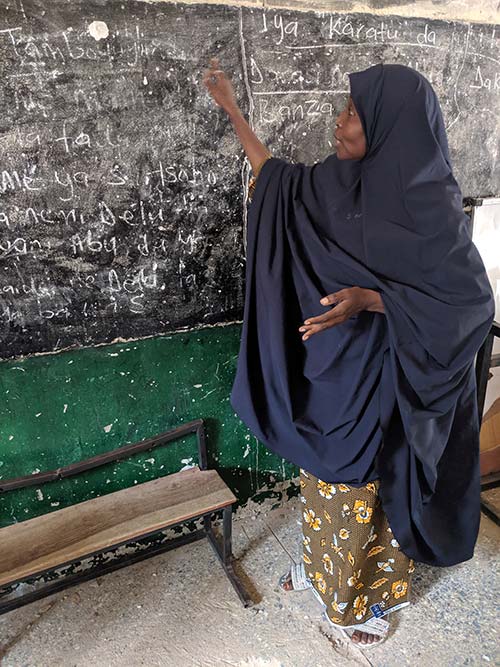
Maryam Mustapha teaches at a nonformal learning center in Maiduguri, Northeast Nigeria. Her classes include social emotional learning, a critical component of programming for education in emergencies. Photo credit: Anna Eisenberg/FHI 360
In emergency contexts, when many support structures fracture, education can provide protection, heal trauma and inspire hope. Education programs that feature social-emotional learning (SEL) interventions — the process through which children and adults understand and manage emotions and develop self-control and interpersonal skills — have the potential for large-scale impact in fragile and humanitarian contexts. SEL is an especially powerful healer for migrants, refugees and children who can be scarred from prolonged insecurity, trauma, loss, violence or separation from family or homeland.
As new crises seemingly arise every day and existing ones become more protracted, we at FHI 360, the LEGO Foundation and UNESCO’s Global Education Monitoring (GEM) Report are exploring evidence-based ways to incorporate SEL research and programming for education in emergencies.
A new policy paper from the GEM Report, Education as Healing: Addressing the Trauma of Displacement through Social and Emotional Learning, draws on the global analysis in the 2019 GEM Report assessment on migration, displacement and education and rigorous new research done in partnership with FHI 360 to compile evidence-based findings on effective SEL approaches. The paper also presents recommendations for policymakers and other stakeholders to invest in SEL evidence-generation and programming at global, national and regional levels.
